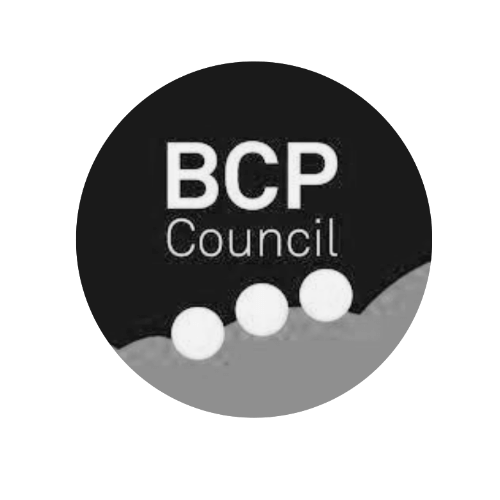Communication Tips for Dementia

Communicating with a loved one with dementia can offer profound moments of connection and understanding. However, it can also be extremely challenging because the condition impacts the way they process language, memories and thoughts. But, with a bit of patience, empathy and the right dementia communication strategies, you can have meaningful communication that is rewarding for everyone.
As dementia is a degenerative condition, the way you communicate with your loved one will likely need to change as their condition progresses. So, it is important to understand how the condition changes so you can adapt to it.
At LuxuryCare, our care homes are dementia care specialists. We use Dr Gemma Jones’ 4-Stage Dementia model to guide our care and your loved ones’ care plan. It is also used to direct our communication methods, and we encourage you to familiarise yourself with it so that you can enrich your interactions with your loved one.
In this blog, we share how to talk to someone with dementia, using the 4-stages model to ensure you are using techniques that reflect your loved ones’ condition.
What Is Dr. Gemma Jones' 4-Stage Model of Dementia?
Dr Gemma Jones is a dementia specialist who has created a 4-stage behavioural staging model to map out the progression of dementia.
This is used across dementia care as a reference point to track behaviour and symptoms of the condition.
But it goes beyond the medical and physical conditions, as it allows us to weave your loved ones’ life stories with current needs. This is particularly important for dementia communication strategies.
In understanding the stages, behaviours and changes of symptoms of dementia, you can adapt your approach to talking to your loved one with dementia, enabling positive and productive interactions.

Dementia Communication Strategies In Each Stage
Stage 1 – Normal Forgetfulness
In the first stage of dementia, your loved one will likely start to appear confused and forgetful. Their attention span is short, and they might start to struggle with finding the right words or losing their train of thought.
Dementia communication strategies for this stage include:
- Being patient
- Create a calm environment
- Reduce distractions around you
- Use active listening – give your full attention and show you understand what they are saying
- Avoid interrupting your loved one
- Use simple sentences
- Choose clear language
- Don’t overload them with information at once
Stage 2 – Mild Confusion
As the condition progresses, you will probably notice that your loved one starts to say exactly what they are thinking. This can make conversations interesting, to say the least.
On top of this, their language will become more obviously affected as they start to invent words to make up for the ones they can’t remember.
Their attention span continues to shorten, and they lose their thoughts more and more.
Good communication strategies for those with dementia in this stage are:
- Use gentle reminders
- Start to introduce visual aids to assist memory
- Maintain eye contact
- Use a warm tone of voice
- Provide reassurance when they are talking, especially if they have forgotten a word
- Try not to correct them or argue with them
We all know how frustrating it can feel when the word is at the tip of your tongue, but you just can’t get it. This is how your loved one will feel a large part of the time, so following these tips will reduce the frustration felt by everyone.
Stage 3 – Severe Confusion
This stage is where their communication skills will severely drop, making dementia communication strategies slightly more complicated.
Their verbal communication will be limited. They will likely use short and simple phrases and make minimal effort to start a conversation but will instead repeat the same phrase throughout the day.
Communication at this stage should be simple and focused on non-verbal communication:
- Focus on non-verbal communication, such as facial expressions, gestures and touches
- Make sure to keep to one topic at a time
- Offer choices, but keep them limited so you don’t overwhelm them
Stage 4 – Late-Stage Dementia
During the final stage of dementia, your loved one will likely seem withdrawn from the world. Unfortunately, this can also be the case with conversations, as they appear to sleep for most of the day.
Dementia communication strategies for this stage of the condition include:
- Using sensory communication such as music, touch or photos
- Speak softly
- Continue speaking, even when verbal responses are minimal – they will be listening
- Continue visiting and being present; even if you sit in silence your presence will be reassuring to them
How We Incorporate Dementia Communication Strategies Into Our Care
As we mentioned above, our homes across Bournemouth and Poole are dementia care specialists. This means that our team undergoes specific dementia training to ensure everyone working within our homes understands the behaviours and symptoms of the condition and is able to communicate effectively with your loved one.
To us, incorporating dementia communication strategies into our care and interactions with our loved ones is second nature.
Your loved one will receive a bespoke care plan, which will be created throughout the admission process based on discussions with you, your loved one and medical professionals in their care. In doing this, we map out their condition and required care to the 4-stages model.
Alongside formalising their care, we will also make notes of the best communication tactics, specifying any particular tips that might work, for example, a specific piece of music that they always respond to or whether they are particularly prone to getting distracted.
We regularly review the care plan, your loved ones’ condition and their care with you and amend the plan to reflect any changes. With this, we will also discuss communication changes so everyone can adapt to new symptoms and still enjoy interactions.
With everything in our care, personalisation is at the centre, including how we communicate with your loved one. So, you can be confident that we will talk to your loved one in a way that suits them and gives them the best understanding.
If you want to learn more about our dementia communication strategies, we recommend visiting our homes. When you visit, you can see our approach in practice, getting a clearer understanding of it.
Call us on 01202 037373 or complete our online contact form to ask us any questions or book your visit.















